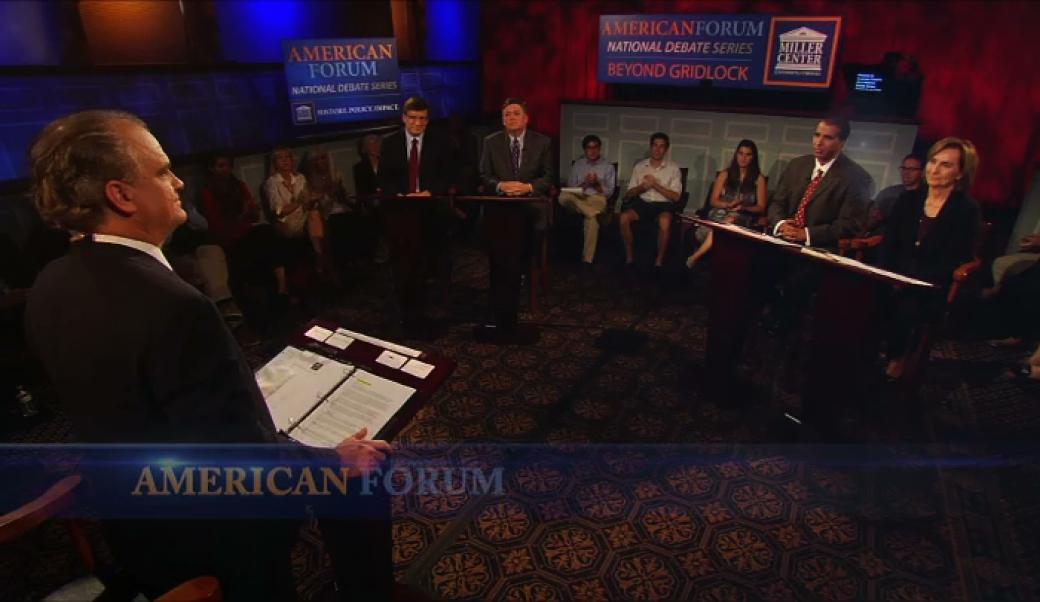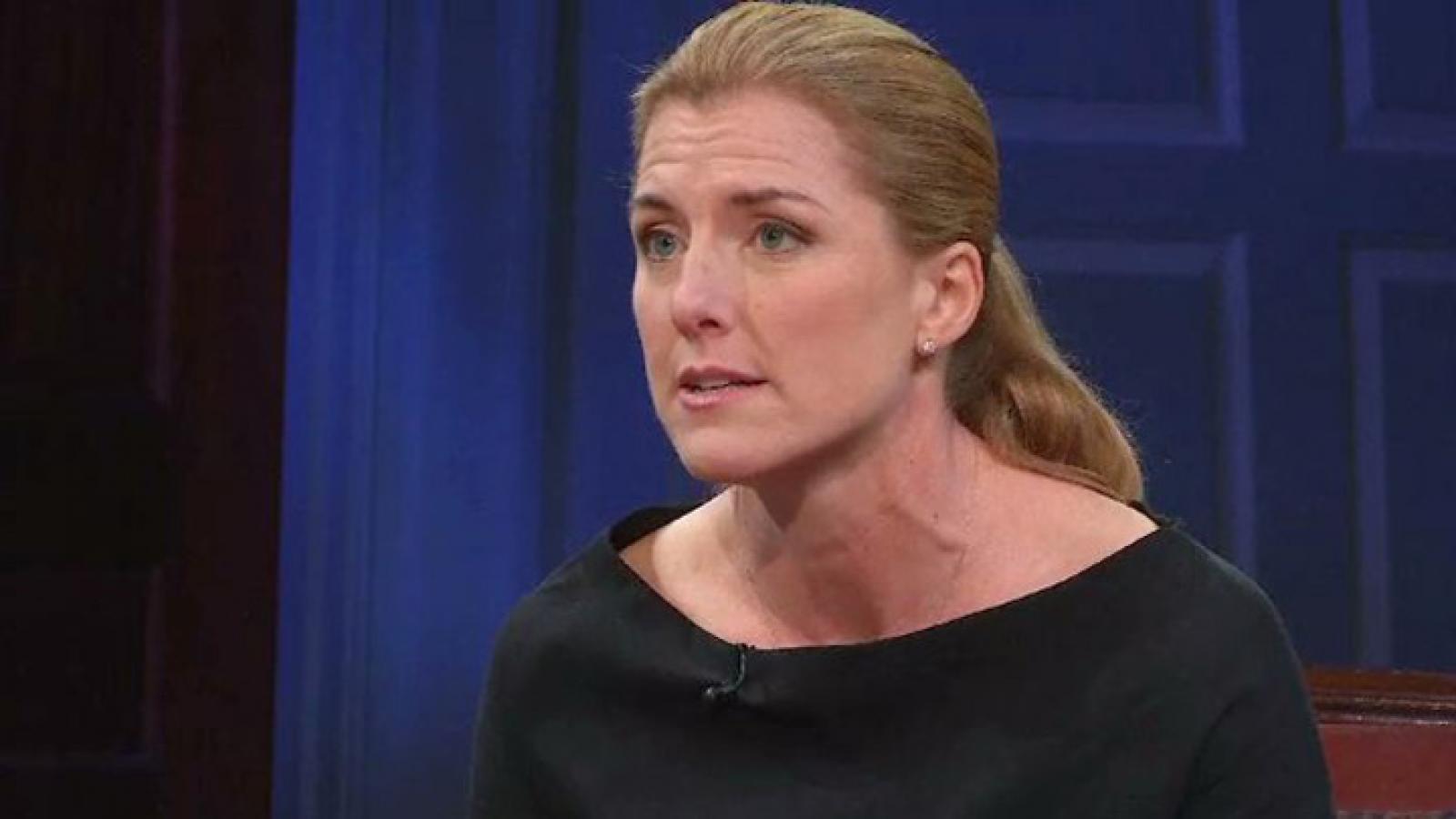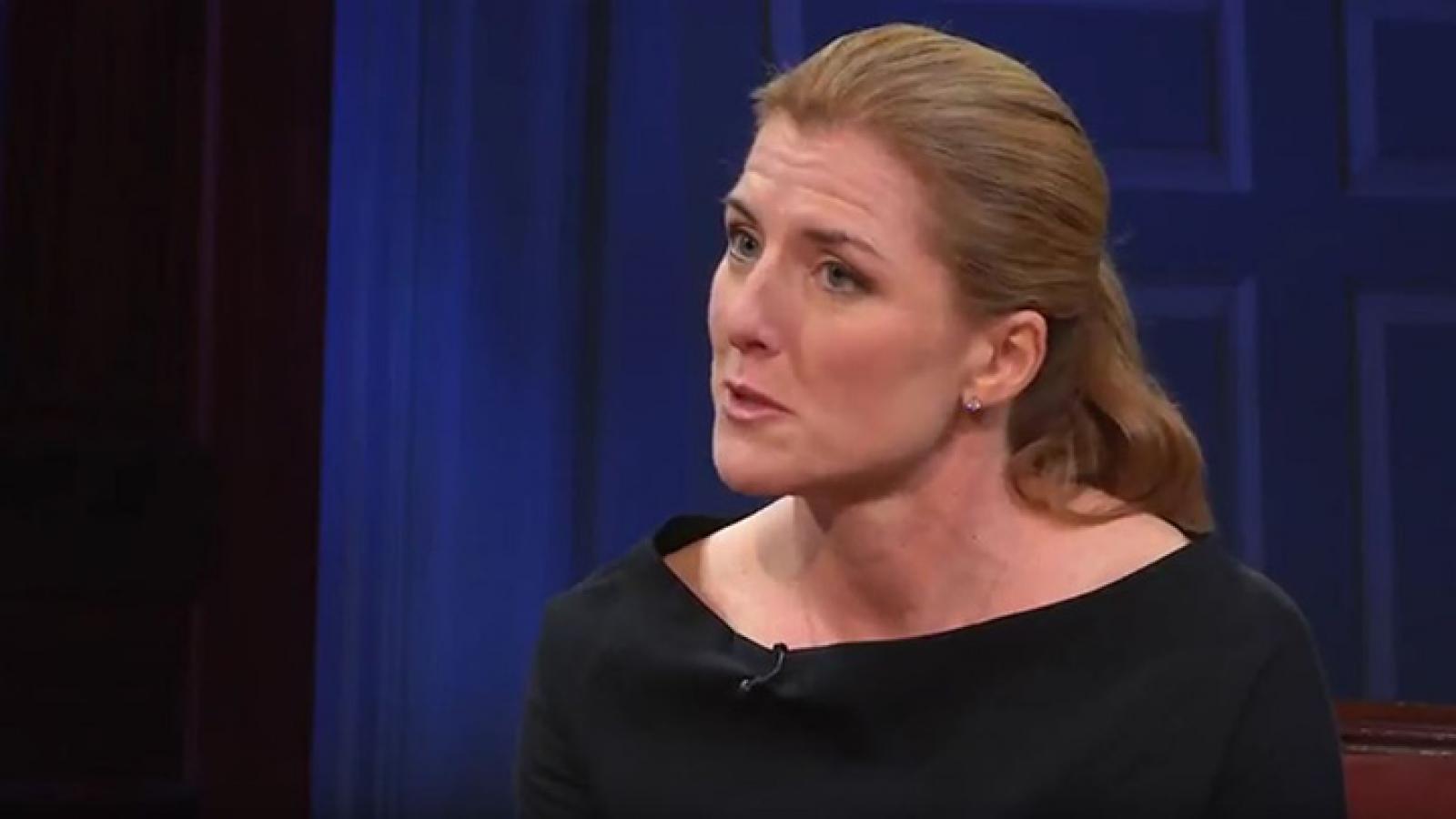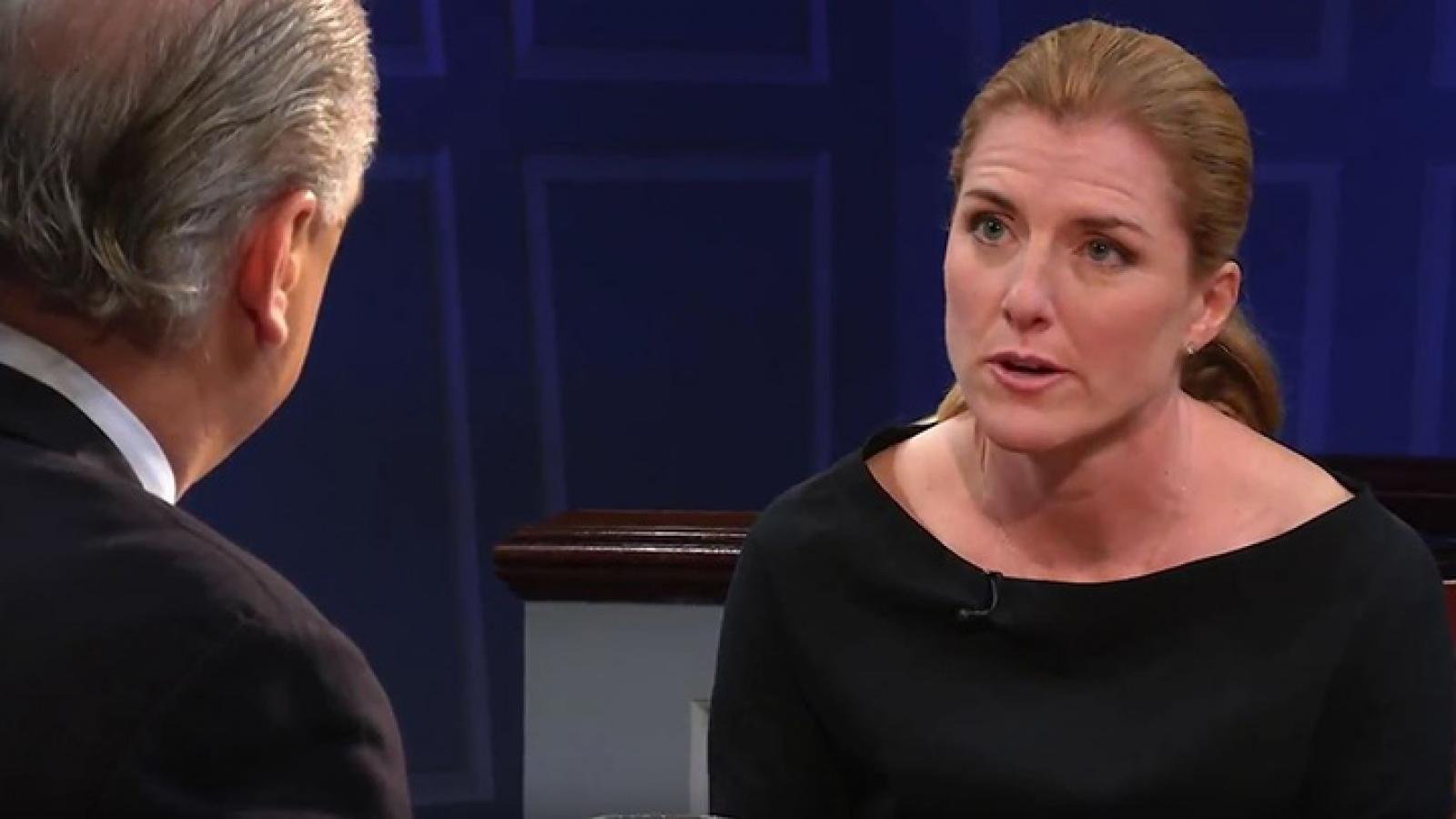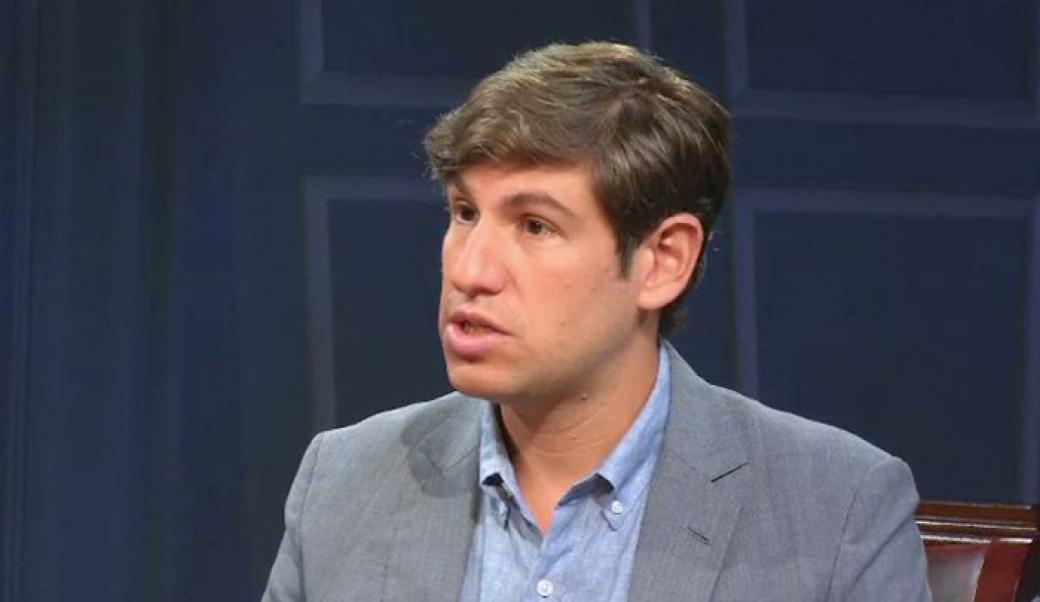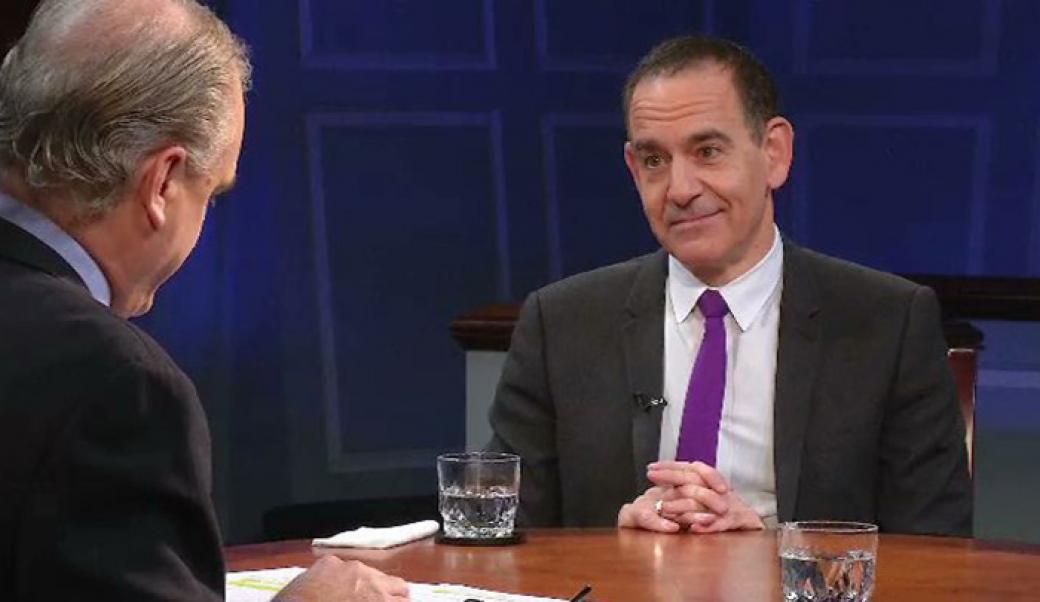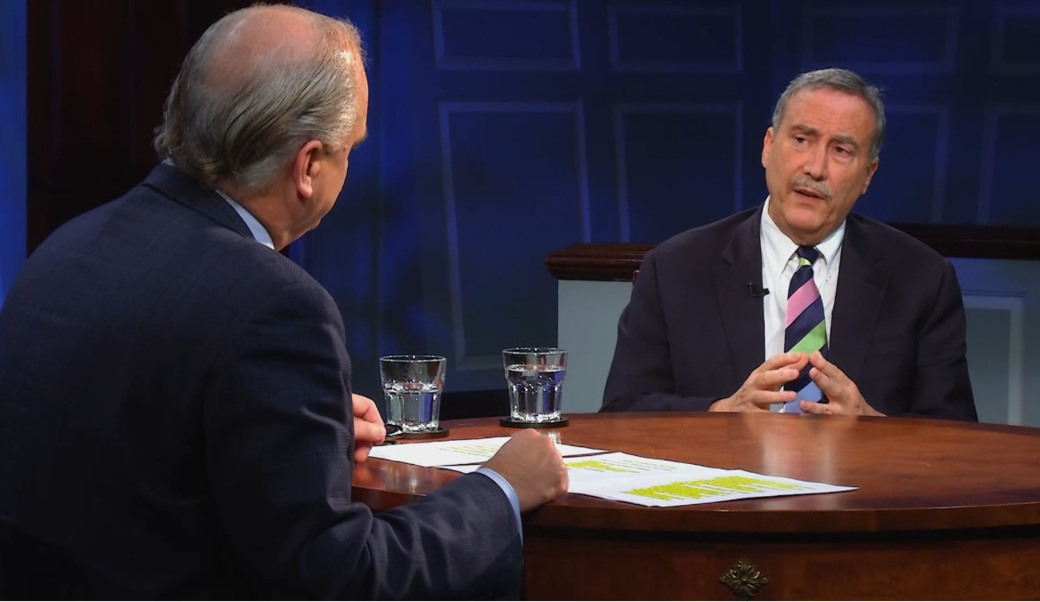About this episode
November 18, 2016
Margaret O'Mara
The United States has had several pivotal elections that we are taught deeply changed America—Abraham Lincoln in 1860 and the Civil War that followed, the 1932 election of Franklin Delano Roosevelt leading to the New Deal, societal changes leading to the 1992 election of Bill Clinton, Teddy Roosevelt’s reelection in 1904. What about 2016? Our guest in this week’s episode is Margaret O’Mara, a professor of history at the University of Washington and the author of "Pivotal Tuesdays: Four Elections That Shaped the Twentieth Century."
Elections
Was 2016 a pivotal election?
Transcript
0:51 Doug Blackmon: Welcome back to American Forum. I’m Doug Blackmon. We’ve all just survived a presidential election that for many of us felt unlike any previous one in recent history. It was ugly and the most powerful motivation for millions of Americans wasn’t how much they liked the candidate they supported but making sure the other one didn’t win. So we watched two candidates with deep unaffordability rating battling it out mostly on issues of personality rather than the enormous technological demographic and generational issues facing our society. Why was that? Have we simply become a democracy that views our political process as sport or tribal affinity? Do big changes in society shape our elections or is it the other way around? Do specific candidates and the ultimate selection we make as a people fundamentally alter the course of our history? The United States has had several pivotal elections that we are taught deeply changed America—Abraham Lincoln in 1860 and the Civil War that followed, the 1932 election of Franklin Delano Roosevelt leading to the New Deal, societal changes leading to the 1992 election of Bill Clinton, Teddy Roosevelt’s re-election in 1904. What about 2016? Was it just an ugly aberration or did something really profound happen? Our guest today is Margaret O’Mara, a professor of history at the University of Washington and the author of two books including Pivotal Tuesdays: Four Elections that Shaped the Twentieth Century. Thank you for being here.
FACTOID: The Question: What makes a U.S. presidential election pivotal?
Margaret O’Mara: Thank you so much for having me.
2:23 Blackmon: In recent times, not just in the most recent election but in recent years there’s been a lot of debate about what actually makes an election turn out a particular way, what makes it pivotal, does the substance of the issues of the country really matter? But if we look at things over a broader period of time, which you’ve written about, what is it that makes a presidential election truly pivotal?
O’Mara: Well, it’s hard. In some way you could say every election in its way is pivotal every four years. But really the elections where you have a change of power, either a change of party or you have a new president of the same party coming in, are usually the ones that attract the most heat and light, and where most changes are happening. The way that I, I wrote a book that focused on four elections in the 20th century. Look, I could have written a book about 25, look, it would have been a really big book, but I chose the four not just because they were these moments of a new person coming in, but also because they were reflective of larger changes going on which every election is. Economic changes, moving from an industrial to a post-industrial society for example. Changes in the media because the media and the message matter in presidential elections, and the ability of a candidate to really grasp and use the newest media platform of the era often has a big impact on whether they’re going to be successful. And the other thing that drew me to these particular races what the presence of third party or independent voices that may not have won the race but changed the trajectory of the race and left their imprint on what happened next.
FACTOID: O’Mara examines 1912, 1932, 1968, and 1992 elections
4:00 Blackmon: So if we look at these, the four elections that you’re talking about or if there were another one you want to bring into it—but—of those four, which might you say or pick two, what would you say would in terms of fundamentally altering the course of American history. I guess FDR’s election, that’s one that no one could argue with, that is an absolutely basil change in American history, but what’s—of the others what might you say would be the more Historic with a capital H?
O’Mara: Well the election of 1912 is one where you had a, again reflective of incredible changes in society and I think it’s an election that has a lot of resonance right now in 2016 and in the contemporary era.
Blackmon: Talk about that.
O’Mara: Imagine if you were born, if you were 50 years old in 1912. You had been born into an America that was mostly agricultural, where most people were farmers, small town, not very, not an industrial power. By 1912, you would be living in a place that was on its way to becoming 50 percent urban in terms of population, where you had these giant industrial cities, these huge factories belching smoke, and you had millions of immigrants from all around the world including southern and eastern Europe, coming in to the United States and really changing and challenging what it meant to be an American. So in this incredible change unlike today you didn’t have a very large central government as a countervailing force against the forces of big business or this incredible industrial growth. And so 1912 became this big debate that in some ways was a perennial debate in American politics about the questions about how much power the government should have and how do you balance individual rights with collective responsibility? But it became a debate where there were voices calling for larger government. Many of those voices were coming form the Republican side of the aisle. And so on the Democrat side of the aisle were arguments against a stronger Washington presence, for perhaps more government activism but activism at the state and local level.
FACTOID: Election of 1912 was a four way race, Woodrow Wilson elected president
6:11 Blackmon: With the old system breaking down, how did the outcome of that election or did the outcome of the election shape the next several decades of American history?
O’Mara: Well going into 1912 the Republican Party was the party, you might say more closely associated with progressive politics or this idea that there needed to be a professionalized, larger government entities that were in some ways regulated and controlling these uncontrolled forces of the market, protecting workers, etc. Now progressive politics of that timespan was found both in the Republican and the Democratic parties, but what happens in 1912 is that Teddy Roosevelt who had been president and a former president kind of like in 2016 you had very familiar names in the race, some of the names were very familiar.
FACTOID: Teddy Roosevelt became president following McKinley’s assassination
He had left the White House, had effectively handed the keys over to his handpicked successor William Howard Taft who was a Republican with very similar strife to Teddy Roosevelt. That Taft and Roosevelt were really not that far away on policy terms in terms of how they approached the business of governing. But Teddy Roosevelt really, he really didn’t like not being president anymore. He was pretty young, he was vigorous, and he thought that Taft was not holding up to his legacy quite well enough. So he comes in in 1912 first runs against his old friend Taft for the Republican primary, creates this huge rift within the Republican Party. And in doing so, Taft eventually wrings out the nomination for the GOP. When that happens, Roosevelt bolts and becomes the flag bearer of the progressive party the Bull Moose Party and because of that rift who wins? The Democrat, a guy that most people hadn’t heard of two years earlier, Woodrow Wilson the former governor of New Jersey, a history professor among other things. And so, the reason this has a lasting effect is that the Democrats become the party of reform. They become the party of progressive, of a more active government. Many of the things that are talked about, the broad concepts that are talked about in 1912 are realized eventually in Franklin Roosevelt’s New Deal, Franklin Roosevelt, a Democrat.
8:38 Blackmon: What’s interesting about 1912 and that I wonder about the parallels to the present—again not taking them too far—but you have, the Republican Party goes through a definitional crisis leading up to that election. If there’s anything, any lesson that we might draw from 1912 to suggest where the Republican Party, as it goes through this identity crisis after 2016, where that’s likely to go. What do you think?
O’Mara: Well the Republicans in 1912, or the Democrats in 1968 for that matter, are good object lessons that you know, it’s evidence we can take in balance when asking that question “Hey what’s gonna happen to the Republican Party after 2016?” And the lessons from what we've learned from history is that the two major parties are remarkably resilient, remarkably dynamic, they bend to fit, they do not break. The last time we lost a major party, we had a civil war on our hands you know, goodbye Whigs. And they’re weren’t around all that long so you were still in the, you know it’s very hard to draw those comparisons to the modern era where you have incredibly durable modern parties, but as you pointed out, extremely dynamic, where the constituencies change.
FACTOID: Whig Party formed in 1830s largely in opposition to Andrew Jackson
Sure, the Republicans may you know become the party of business and fiscal conservatism, starting with the more laissez faire 1920s, but it still was the party of the northeast. It was still was a urban party. It was a party of upper-middle class, small business people and business people. It was the party of African Americans until the era of Franklin Roosevelt. So, this change comes gradually, but it does happen, and what parties have to do and where these, when third party inroads are these moments of great anti-establishment anxiety, I mean when you have a lot of change, economic change, social change, that is a time when skepticism about the ability of established institutions, whether they be government or big business, or big political parties to do the job, that’s when it crests, and we’re seeing that in 2016 as we’ve seen in earlier eras. And that is a time when parties really do need to reckon with how do they respond to these new forces, and often times the response has been to bring them in in some way.
10:55 Blackmon: And so another year of both a third party impact or a schismatic impact would be 1968. And so, in that year we have George Wallace very much so, both affecting the course of events, but also introducing, arguably the idea, George Wallace also arguably introducing the idea that a discrete subset of voters, called different things at different times, but that has existed in American politics forever perhaps, but certainly over the past 50 years. And that being the in 1968, seeming very openly racist group of lower income, working-class white voters primarily in the south, but also, to the surprise of some at the time, blue collar workers in other parts of the country. As the years have gone by, that constituency has not had the explicit racial overtone that it had when it was organized in the 1960s. But still, a traceable group of voters expressing a certain kind of economic anxiety, worry in the face of big demographic changes, in the ’60s the demographic change was simply the way we were reordering the treatment of the people who were already here and to some degree some immigration. Now demographic change is driven more by outsiders coming in. But this anxious group of mostly white, working class voters, they’ve also been a big factor, even before 2016, obviously a big part of the Trump phenomenon. But first, is that a fair observation to make, that this is essentially the same cohort over the past 50 years?
O’Mara: Well I think you know, the case of the dotted line from Wallace to Trump, is an interesting, it opens up this um, what it reminds us of is that pivotal political moments or pivotal electoral moments don’t always happen on election day. One thing that Wallace and everything after was responding to was this fundamental realignment of the political map, which was in the wake of the Civil Rights Act of 1964. When the solidly Democratic south, the white south, gradually, not immediately, but gradually over time and starting with inroads as early as 1966, the Republican Party starts winning elections in the south. And, some of it is moderate Republicans like George H. W. Bush in Texas, who was one of the earlier southern victors of that shift. But it is increasingly over time either Democrats who had been staunch supporters of segregation switching parties, Strom Thurmond comes to mind as an example of that.
FACTOID: South Carolina Senator Thurmond bitterly opposed integration
And you have this racial reordering of society. The thing that makes, and I think it has been so difficult to talk about this phenomenon and kind of the “is it race, is it economics?” And when we look at it though through the long view and take say 1964 as our starting point, you have a period of enlarging rights for so many groups, not just people of color, but also women, gays and lesbians, this enlarging of who gets to fully participate in different careers and different parts of society, enlarging of where people can live and do live, a real reordering of that. And it’s happening at the same time that the American economic pie is contracting, for a whole host of reasons, for globalization, automation, you know, that robot overlords have taken away some of the jobs. And, because as that pie shrinks, and now you have more people able to get a piece of that pie. If you were somebody who was advantaged under the old system, you’re seeing opportunity slip away, and you’re seeing people who don’t look like you now competing for these opportunities.
15:10 Blackmon: I think it’s fascinating that the uh that if you look at the last ten years of American political life you see all of the things you were just describing you also see the election of the first black president. This event which clearly many, many, many people who ultimately voted for or were sympathetic to Donald Trump in 2016 also voted for Barack Obama in 2008. But, what does that say about where we are going beyond 2016? Because certainly you had Donald Trump affecting a group of very disaffected voters. Reaching back to law and order and racial tropes. You had Bernie Sanders representing a group of younger, disenchanted, worried, uh but not so much racially divided voters, but concerned about income and equality. Even with Gary Johnson the Libertarian, economically similar in some respects to Donald Trump, but missing some of the racial dimensions. But, what would you make of history? I know you’re not a crystal ball but uh where does all, where do you imagine all of this heading. Is it a sustained period of struggle between those forces, or something else?
FACTOID: Libertarian Gary Johnson won 3% of popular vote in 2016
O’Mara: Yeah, well the long view in some ways is reassuring because you have a healthy sense of how nasty elections have gotten in the past and we soldiered through. The long view also reminds us that the parties can be durable um and that you know the last 50 years have seen in some ways a sharp turn to in a rightward direction uh and a direction toward smaller government and also a sharp turn towards a reanimating of divides that perhaps were papered over over the middle part of the 20th century uh and where, where people are asserting their identities more sharply in both positive and negative ways. You also at the same time and the election of Barack Obama is a proof point of this as is the nomination of Hillary Clinton as the first female nominee of a major party in 2016. That there is this growing social liberalism and a growing acceptance particularly when you’re looking at younger people and the way their attitudes about race, about gender and sexuality which are regardless of their background and their political background of the younger people seems to be different from their elders.
FACTOID: 57% of registered millennial voters lean Democratic, vs. 36% for GOP
And So you have this strange contradictory politics that is that is I imagine will endure. And it is all made you know with part of what we are operating with right now is again going back to how communication media shapes a particular election and electoral moment. Were now in an era of the firehose of information and the radical transparency of social medium and internet where it’s sound bites have been replaced by hot takes and everyone has a hot take. And, on the one hand it creates this cacophony of voices and including some very angry and some incredibly nasty and violent voices. Um, perhaps, you know, it’s easy to also to be more angry and more violent when you have a cloak of anonymity and a computer screen rather than doing it in person but that doesn’t mean it won’t be personal. And, but there is also this conversation going on and this frank conversation about racial inequality, about gender, and about social inequality and economic inequality that the united states hasn’t experienced for, for quite some time. But these things have been brewing and have been there. It’s just that perhaps they haven’t all been rustled with in, um, such an immediate way as they have bee in this incredible and fateful year of 2016.
19:20 Blackmon: You also have written some about, uh the transition from the you were a volunteer in in Bill Clintons campaign in 1992 [O’Mara: Oh they paid me a healthy salary, Doug, oh I was paid] Oh I am sure, first you were a volunteer, then you were. But you’ve written some about the transition from campaigning of that campaigning to actual governing. Bu so let’s say if it’s February of 2017 and you get a phone call from the office of now the new President Clinton who uh perhaps perfectly remembers everything you did back in 1992, or not. But you get a phone call from the new President Clinton office saying come talk to the president for a few minutes and uh based on these observations that you’ve made, the observations from ’92 as well. Uh, what’s the one piece of advice you would give to me now as a historian for how I can begin to try to wrestle with these forces you’ve just outlined and moved the country passed what has been this terrible moment?
O’Mara: Yeah, well the election season is all about change. This year, and gosh, every year. Everyone’s promising hope and change and big, bold promises. And, but the reality of governing is much more prosaic and much less glamorous. And where the real change comes is actually in that first year of the presidency. Not just the first 100 days, but the first year. That is when all the forces, all the heat and light of this campaign suddenly, you know, everyone who ends up being in charge has to wrestle with the realities of that. Uh, the you know the lessons from the first Clinton presidency and the first year of that presidency include you know the challenge of finding that balance between inspiring and uh, getting, you know you do need to think big and use big words and have big ideas in order to make voters come along with your ideas. And certainly Bill Clinton in ’93 was proposing big stuff, economic package, health care reform, trade deals, all these, and high flying language accompanied all of that. The reality is that you have to meet congress in the middle, and you have to meet all the other political interests in the middle. This year, particularly, is going to be one where, just as Richard Nixon as he entered office in 1969 having won 1968 in this fractious election, had to reckon with and accommodate all of the contending voices including voices not of his party. The anti-war movement, um, what was he going to do about Vietnam? The environmental movement, what was he as a republican going to do about this great concern about environmental protection? A new president, that is when change comes. It is figuring out how to respond to the real, where the real, concerns actually depart from just electoral rhetoric and to not do too much too soon, but yet to inspire and lead.
22:15 Blackmon: So now let’s imagine that is February 2017, and you get a phone call from the office of the newly elected president, Donald Trump, saying, in particular looking back at history, and willing to disregard that you had once worked at a Clinton campaign in the 1990s. [O’Mara: Yes, I am a non-partisan entity now.] But so, and Donald trump, who is not a big reader of books, as he has said, likes things boiled down and you are asked to come to the Oval Office and brief him for a few minutes on, in particular, looking back at these pivotal elections when the country was deeply divided and he wants to make a good faith effort to try to heal some of the wounds that have been so dramatically bared. What’s your council to President Trump?
O’Mara: Well Donald Trump likes deals, so I’d say, here’s the deal, Donald Trump. One of the things that propelled you to the White House was this incredible dissatisfaction with a broken Washington system, or a Washington system where there was so little common ground between the parties. And the Republican Party had decided from, it spent 20 years sort of as a tactile maneuver really, rather than presenting alternative legislation when they have a Democrat in power to just say no. And, that has resulted in not very much. So you are, you’ve busted up the GOP by getting into office. Clearly a big change, take this as your mandate. Not as a mandate to do outrageous things but as a mandate to really, think, redefine what the Republican Party and along with it the Democratic Party is going to be. How are both parties going to address these simmering questions, these divides in America that have been caused by these confluence, how can opportunity be preserved? This widening of opportunity which has been so important, this inclusivity this diversity. How do you have that diverse, pluralistic society that is also is society of opportunity. And, what are you going to do about it and here’s your opportunity. You threw out the rule book and the play book during the campaign. Throw out that playbook, and think about how you rebuild a new partisan coalition or bipartisan coalition that’s going to make government in America great again.
Blackmon: I’ve asked a lot of people a version of this question at this table and I think that’s the best one I’ve had yet. Margaret O’Mara, thank you for joining us.
O’Mara: Thanks. Her book is Pivotal Tuesdays: Four Elections That Shaped the Twentieth Century. If you’d like to send us a comment of this episode or join an ongoing conversation about the big issues that face us all, go to the Miller Center Facebook page or follow us on Twitter. My handle is @douglasblackmon. Our guest is @margaretomara. To watch other episodes of American Forum, share them with your friends, join our e-mail list or read a transcript of this dialogue, visit us at millercenter.org/americanforum. I’m Doug Blackmon. See you again next week.
